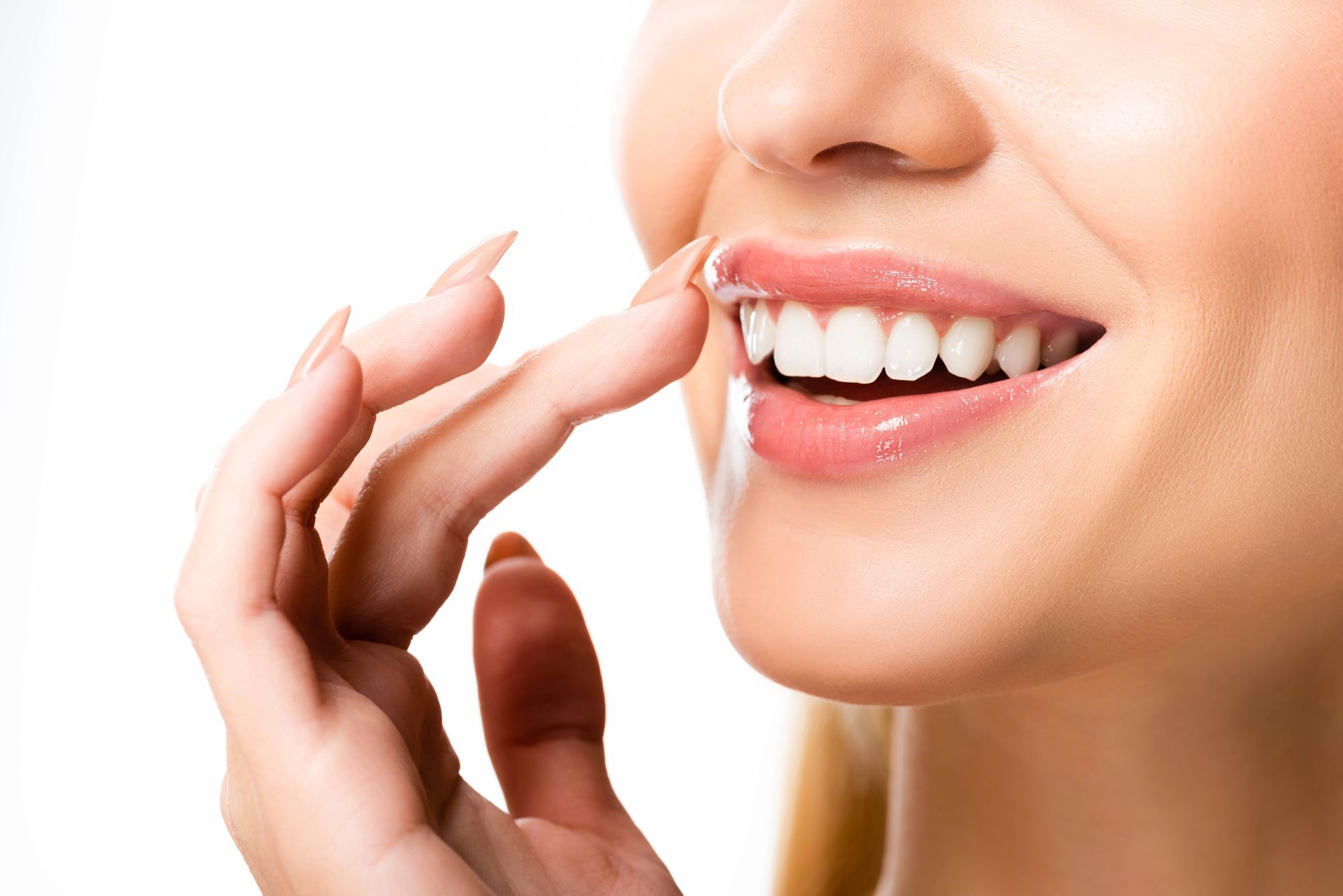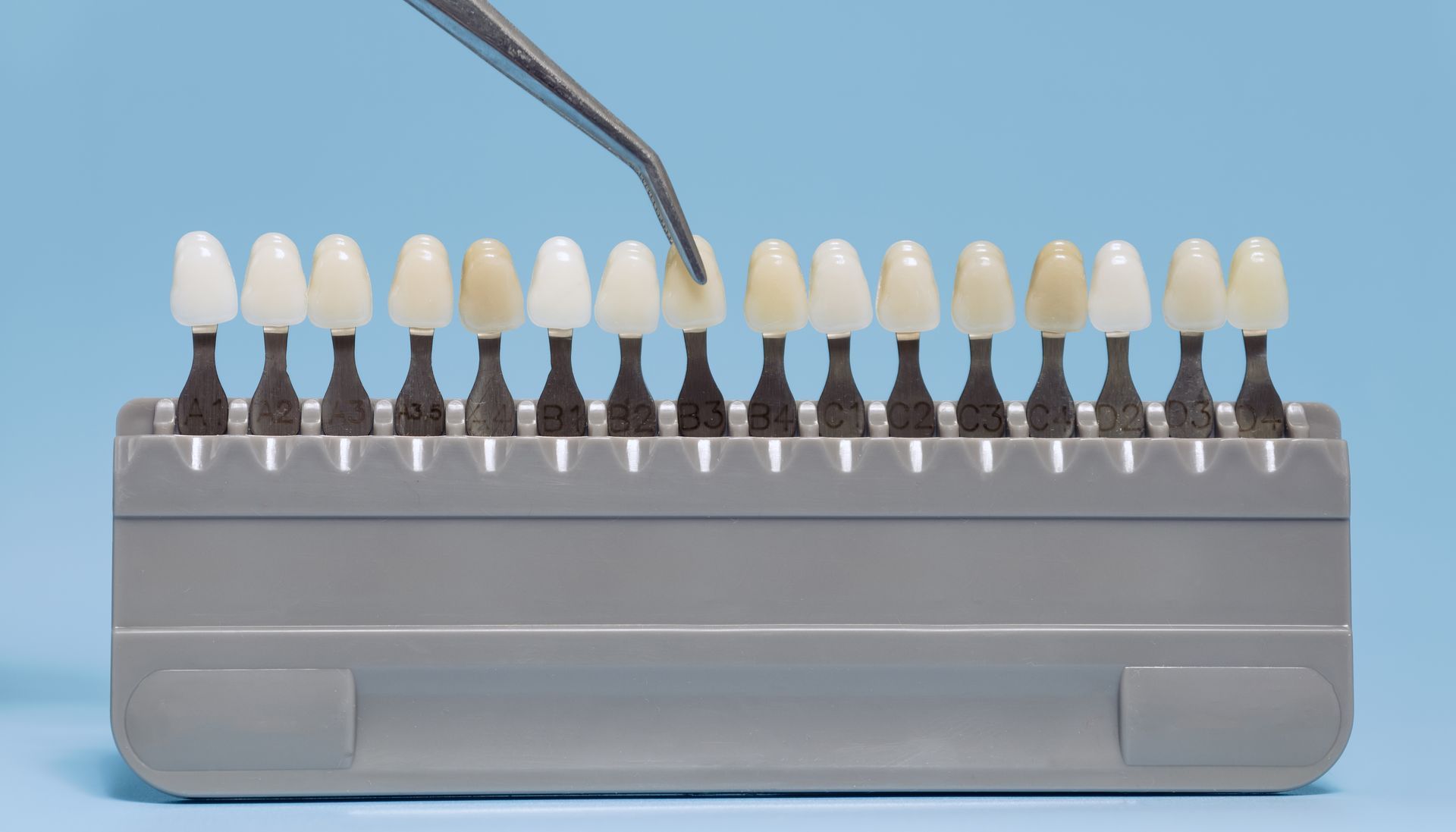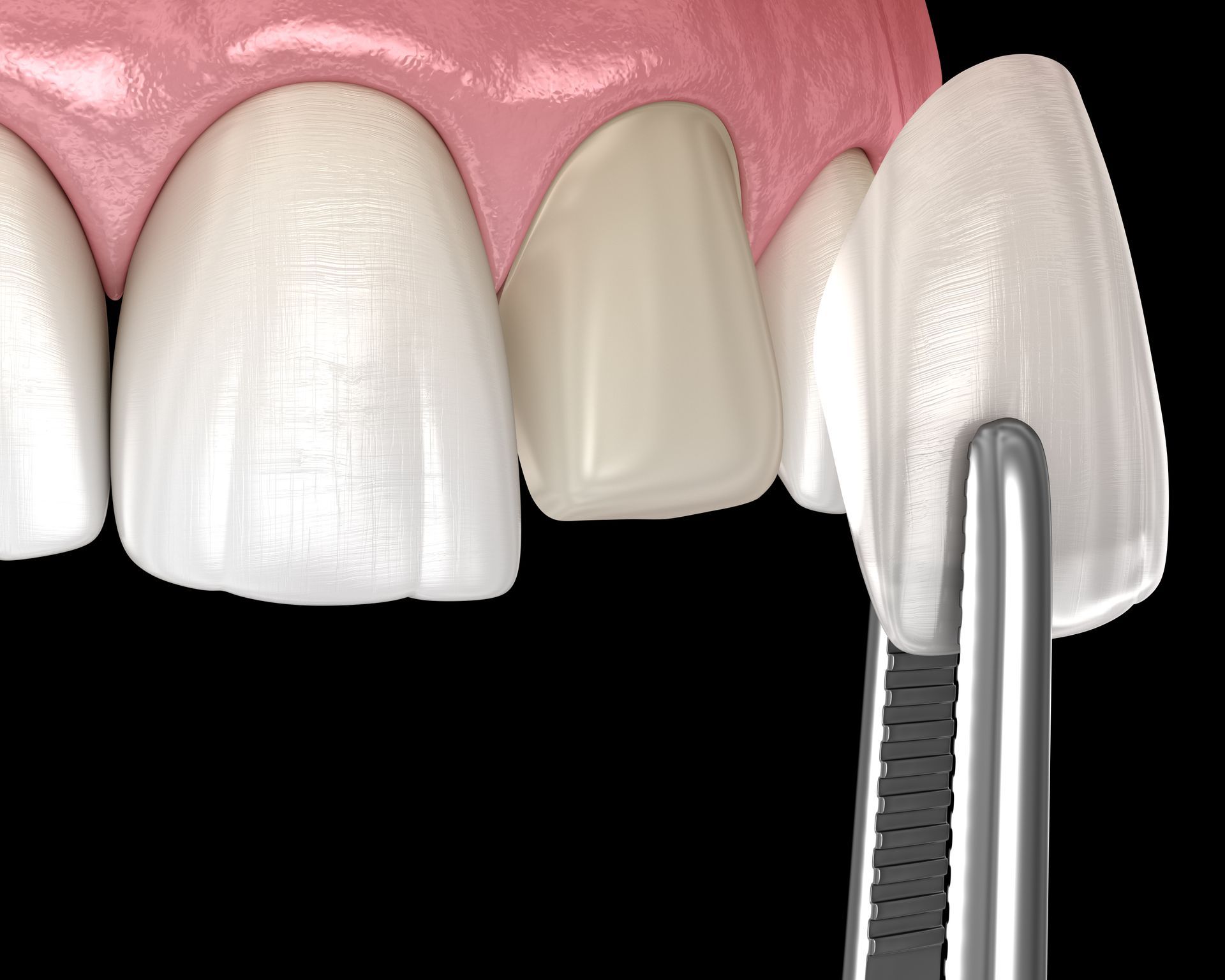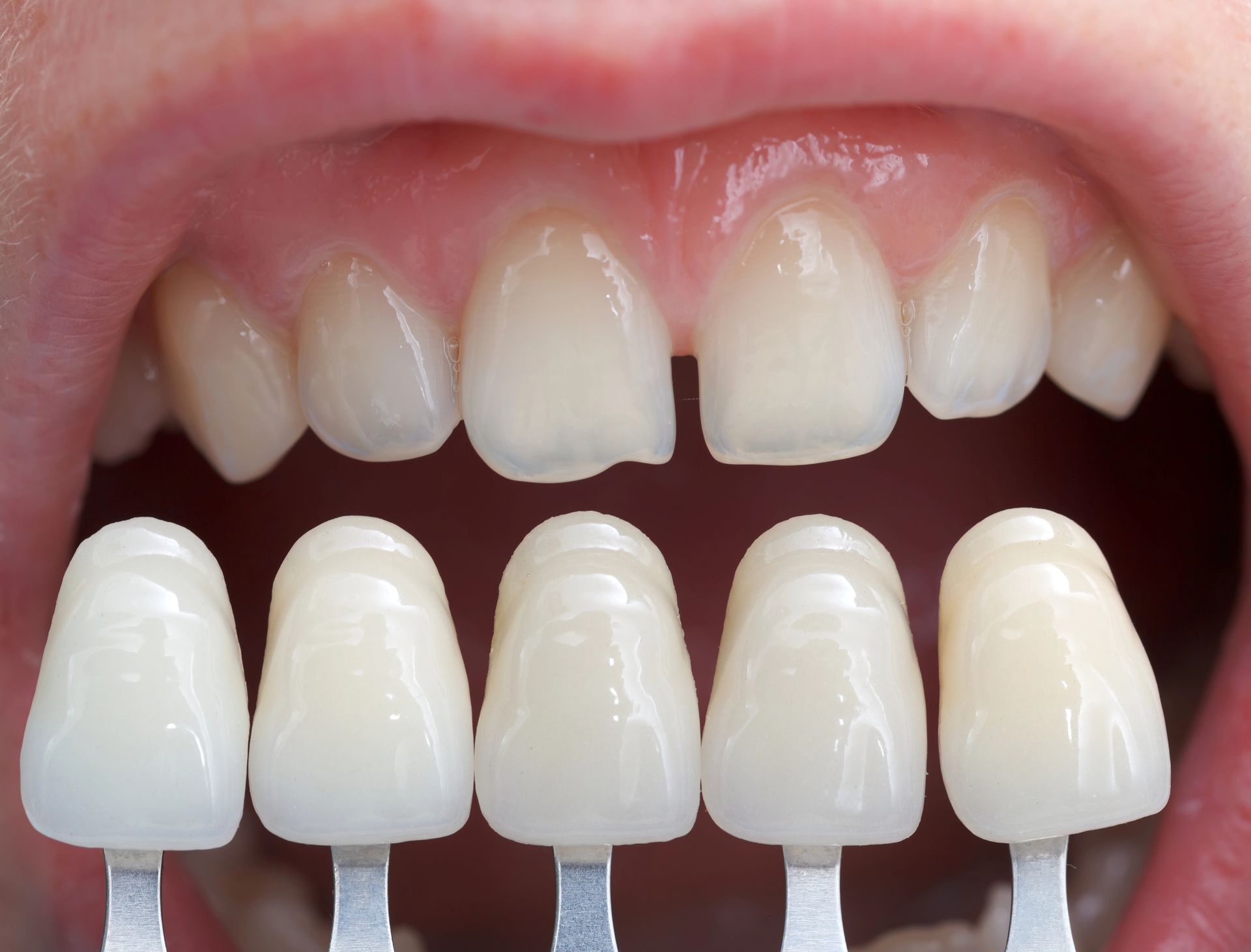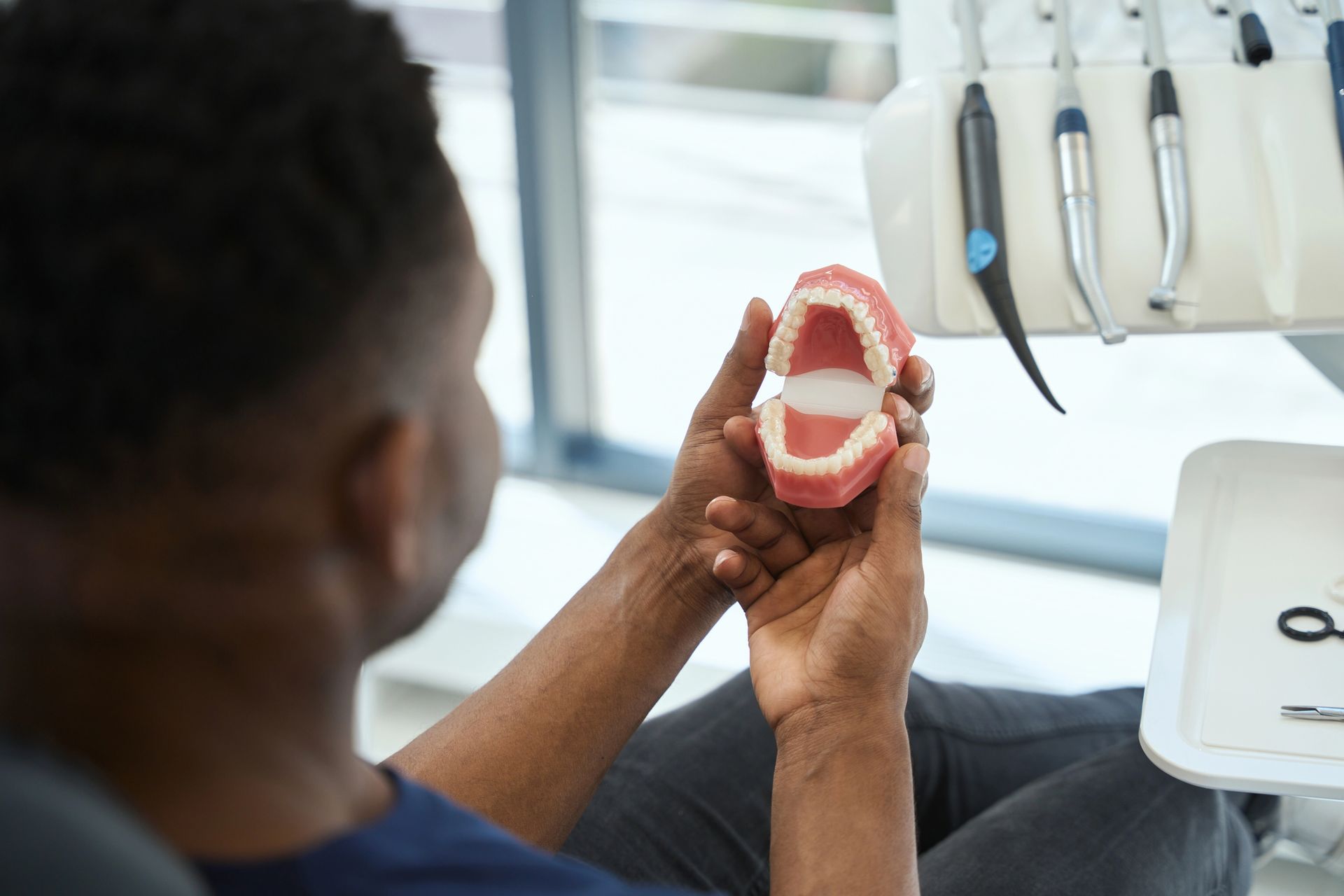
Are you curious about dental veneer maintenance tips to keep your veneers in top shape? Proper care ensures their longevity and maintains their aesthetic appeal, allowing you to enjoy a bright smile for years. Dental Veneer Maintenance Tips Understanding Dental Veneers is crucial for anyone looking to maintain their smile. Dental veneers are thin shells designed to cover the front surface of teeth, enhancing their appearance. They are typically made from porcelain or composite resin materials and are custom-fitted to each individual's teeth. While they are durable, understanding the basics of dental veneer maintenance tips can help ensure they remain in excellent condition over time. For those new to veneers, it's important to familiarize yourself with the process and what it entails. You can learn more about the journey by visiting our page on Getting Veneers for the First Time: What to Expect Before and After . This resource provides valuable insights into the initial steps and aftercare, which are essential for maintaining the longevity and appearance of your veneers. Benefits of Natural-Looking Veneers Natural-looking veneers offer a seamless blend with your existing teeth, enhancing your smile without drawing attention to the fact that you have had dental work done. These veneers are crafted to mimic the translucency and color of natural teeth, providing a realistic appearance that boosts confidence and self-esteem. By maintaining your veneers properly, you can ensure they continue to look as natural as the day they were applied. Incorporating dental veneer maintenance tips into your routine is essential for preserving the aesthetic appeal of your veneers. Regular care helps prevent discoloration and damage, ensuring that your veneers remain indistinguishable from your natural teeth. For more information on achieving a flawless smile with veneers, visit Columbia's Best Dental Veneers . Choosing the Right Material When considering dental veneer maintenance tips, selecting the appropriate material is crucial for longevity and appearance. Different materials offer varying levels of durability, stain resistance, and aesthetic appeal, which can impact how well your veneers maintain their look over time. Understanding the characteristics of each material can help ensure that your veneers remain in top condition, complementing your smile while requiring minimal upkeep. Customization for Individual Smiles Dental veneers are a popular choice for enhancing smiles, and their customization plays a crucial role in achieving a natural look that complements each individual's unique facial features. The process of customizing veneers involves selecting the right shape, size, and shade to ensure they blend seamlessly with the natural teeth, creating a harmonious and aesthetically pleasing appearance. This personalized approach not only enhances the overall smile but also boosts confidence by providing a tailored solution that aligns with personal preferences and dental needs. For those interested in learning more about dental veneer maintenance tips, Design Dentistry Columbia offers insights through their Columbia Dentist services. Importance of Professional Consultation Regular professional consultations play a crucial role in maintaining the longevity and appearance of dental veneers. These appointments allow dental professionals to assess the condition of the veneers, ensuring they remain securely bonded and free from damage. During these visits, any potential issues can be identified early, preventing more significant problems down the line. Additionally, professionals can provide personalized advice tailored to individual needs, helping to maintain the natural look and feel of veneers. Prioritizing these consultations is essential for anyone looking to keep their veneers in optimal condition over time. Color Matching Techniques In the realm of dental veneer maintenance tips, understanding color matching techniques is essential for ensuring your veneers blend seamlessly with your natural teeth. Achieving a harmonious appearance involves considering factors such as the shade, translucency, and texture of your veneers in relation to your existing teeth. This process requires a keen eye for detail and an understanding of how different lighting conditions can affect the perceived color of your veneers. By focusing on these elements, you can maintain a consistent and natural look that enhances your smile's overall aesthetic. Maintenance and Care Tips Proper dental veneer maintenance tips are essential for ensuring the longevity and appearance of your veneers. Regular attention to oral hygiene can help maintain the natural look and feel of your veneers, keeping them in top shape. By focusing on consistent care, you can preserve the integrity of your veneers and enjoy a confident smile for years to come. Cost Considerations and Budgeting When it comes to dental veneer maintenance tips, understanding the cost considerations and budgeting is crucial for long-term care. While veneers can enhance your smile, it's important to factor in potential expenses associated with their upkeep. Regular check-ups and any necessary adjustments can contribute to the overall cost, so planning your budget accordingly is essential. Being aware of these financial aspects ensures that you can maintain your veneers effectively without unexpected financial strain, allowing you to enjoy the benefits of your investment over time. Real-Life Success Stories Many individuals have experienced remarkable transformations in their smiles thanks to dental veneers. These real-life success stories highlight the importance of proper dental veneer maintenance tips in preserving the beauty and functionality of veneers. From professionals who rely on their smiles for career success to everyday people who simply want to feel more confident, maintaining veneers has proven to be a crucial aspect of their dental care routine. By following essential dental veneer maintenance tips, these individuals have managed to keep their veneers looking pristine and natural, ensuring their smiles remain a source of pride and joy for years to come. Conclusion For more information on dental veneer maintenance tips, call us at (803) 291-5782 or check out our Google reviews .

How can you achieve a perfect yet realistic smile with natural-looking dental veneers? By choosing veneers that blend seamlessly with your natural teeth, you can enhance your smile while maintaining an authentic appearance. Natural-Looking Dental Veneers Understanding dental veneers is essential for anyone considering enhancing their smile. Natural-looking dental veneers are thin shells designed to cover the front surface of teeth, providing a more aesthetically pleasing appearance. These veneers are crafted to mimic the natural color and texture of real teeth, ensuring that the result is both beautiful and realistic. The process involves bonding the veneers to the teeth, which can help correct issues such as discoloration, chips, or gaps, ultimately achieving a harmonious and natural look. The appeal of natural-looking dental veneers lies in their ability to transform a smile while maintaining an authentic appearance. They are custom-made to fit each individual's teeth, ensuring a seamless integration with the existing dental structure. For those interested in learning more about maintaining their veneers, the Dental Veneer Maintenance Tips: Keeping Your Veneers in Top Shape can provide valuable insights into preserving their longevity and appearance. Benefits of Natural-Looking Veneers Natural-looking dental veneers offer a transformative solution for those seeking to enhance their smile while maintaining a realistic appearance. These veneers are designed to mimic the natural translucency and texture of real teeth, ensuring that your smile looks authentic and not overly artificial. By choosing natural-looking dental veneers, individuals can enjoy the confidence of a beautiful smile that seamlessly blends with their existing teeth, enhancing their overall facial aesthetics. Moreover, natural-looking dental veneers are crafted to be durable and long-lasting, providing a reliable option for those looking to improve their dental appearance. They are resistant to staining and chipping, which helps maintain their pristine look over time. For those interested in exploring options for achieving a perfect yet realistic smile, consider learning more about Dental Veneers in Columbia . Materials Used in Veneers Natural-looking dental veneers are crafted from a variety of materials, each contributing to the realistic appearance and durability of the final product. Porcelain is a popular choice due to its translucent quality, which closely mimics the natural enamel of teeth, providing a lifelike finish. Composite resin is another material used, offering a more affordable option while still achieving a natural look. Both materials are designed to blend seamlessly with existing teeth, ensuring that the veneers enhance the smile without appearing artificial. The Veneer Application Process Achieving a perfect yet realistic smile with natural-looking dental veneers involves a meticulous application process that ensures a seamless blend with your existing teeth. The procedure typically begins with a thorough examination and preparation of the teeth, followed by the careful placement of the veneers to enhance the overall appearance while maintaining a natural look. This process is designed to provide a durable and aesthetically pleasing result that complements your facial features. For those interested in exploring options for natural-looking dental veneers, Design Dentistry Columbia offers expert services, and you can learn more by visiting your local Columbia Dentist . Comparing Veneers to Other Options When considering ways to enhance your smile, it's important to compare natural-looking dental veneers with other available options. While veneers are designed to mimic the appearance of natural teeth, providing a seamless and aesthetically pleasing result, other alternatives like crowns or bonding may offer different benefits and drawbacks. Crowns typically cover the entire tooth and are often used for more extensive restoration, whereas bonding involves applying a resin material to the tooth's surface. Each option varies in terms of durability, cost, and the level of invasiveness required, making it essential to weigh these factors when seeking a perfect yet realistic smile. Longevity of Dental Veneers Natural-looking dental veneers are designed to provide a durable and aesthetically pleasing solution for those seeking to enhance their smile. These veneers are crafted to withstand the daily wear and tear of eating and speaking, maintaining their appearance over time. The longevity of dental veneers can vary based on several factors, including the materials used and individual oral hygiene practices. However, with proper care, natural-looking dental veneers can offer a long-lasting improvement to one's smile, allowing individuals to enjoy their enhanced appearance for many years. Caring for Your Veneers Maintaining the appearance of natural-looking dental veneers involves a commitment to regular oral hygiene practices. These veneers, designed to mimic the translucency and texture of natural teeth, require gentle care to preserve their aesthetic appeal and longevity. By ensuring that your veneers are kept clean and free from plaque buildup, you can enjoy a smile that remains both beautiful and realistic over time. Common Misconceptions About Veneers Many people believe that dental veneers result in an artificial appearance, but this is a common misconception. In reality, natural-looking dental veneers are designed to blend seamlessly with your existing teeth, providing a smile that appears both flawless and authentic. Another misconception is that veneers are only for cosmetic purposes, when in fact they can also address functional issues such as chipped or misaligned teeth. Additionally, some assume that veneers require extensive maintenance, yet they are crafted to be durable and long-lasting with regular oral hygiene. Understanding these misconceptions can help individuals appreciate the true benefits of natural-looking dental veneers. Choosing the Right Shade Selecting the appropriate shade is crucial for achieving natural-looking dental veneers that seamlessly blend with your existing teeth. The goal is to ensure that the veneers complement your skin tone and the natural color of your teeth, creating a harmonious and realistic appearance. By focusing on a shade that mirrors the subtle nuances of your natural teeth, you can enhance your smile while maintaining an authentic look. This careful consideration helps in achieving a perfect yet realistic smile that exudes confidence and charm. Conclusion Achieving a perfect yet realistic smile with natural-looking dental veneers is within reach; call (803) 291-5782 or read reviews on Google Maps to learn more.
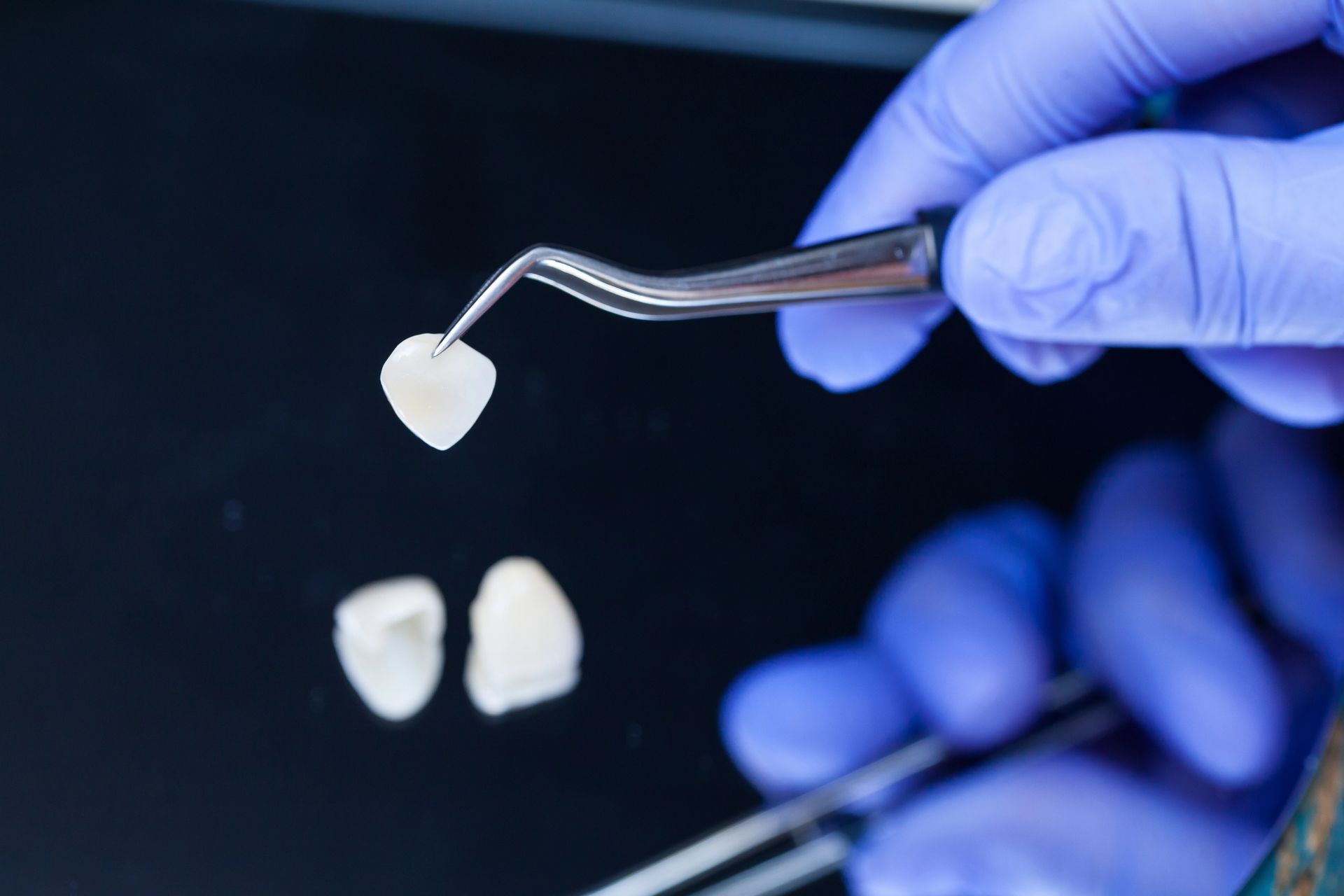
Are you trying to decide between composite vs porcelain veneers for your smile? Both options offer unique benefits and can enhance your appearance, but the right choice depends on factors like durability, cost, and aesthetic preferences. Composite vs Porcelain Veneers Understanding the materials used in dental veneers is crucial when considering composite vs porcelain veneers for enhancing your smile. Composite veneers are crafted from a resin material that is applied directly to the teeth, allowing for a more flexible and less invasive approach. On the other hand, porcelain veneers are made from a ceramic material that is custom-fitted and bonded to the teeth, offering a more durable and natural-looking finish. When evaluating composite vs porcelain veneers, it's important to consider the aesthetic and functional differences between these materials. While composite veneers can be more cost-effective and quicker to apply, porcelain veneers are often praised for their longevity and resistance to staining. For those interested in exploring how veneers can address specific dental concerns, such as misalignment, you might find valuable insights in our article on Dental Veneers for Crooked Teeth: Can They Straighten Your Smile? Aesthetic Differences When considering composite vs porcelain veneers, one of the primary factors to evaluate is their aesthetic appeal. Composite veneers are known for their ability to be shaped and polished directly on the teeth, allowing for a more immediate transformation. However, they may not always match the natural translucency and luster of real teeth as effectively as porcelain veneers. Porcelain veneers, on the other hand, are crafted in a lab and can be customized to mimic the natural appearance of tooth enamel, often resulting in a more lifelike and radiant smile. The choice between composite vs porcelain veneers can significantly impact the overall look of your smile. While both options aim to enhance dental aesthetics, porcelain veneers are often praised for their superior ability to resist stains and maintain their color over time. This makes them a popular choice for those seeking a long-lasting solution. For more information on how these options can enhance your smile, visit our page on Veneers in Columbia . Durability and Longevity When considering composite vs porcelain veneers, understanding their durability and longevity is crucial. Composite veneers are known for their affordability and ease of application, but they generally have a shorter lifespan compared to porcelain veneers. Porcelain veneers, on the other hand, are renowned for their strength and resistance to staining, often lasting significantly longer. The choice between composite vs porcelain veneers can impact how long your smile maintains its aesthetic appeal, with each option offering distinct advantages in terms of wear and tear over time. Cost Comparison When considering composite vs porcelain veneers, cost is a significant factor for many individuals. Composite veneers are generally more affordable, making them an attractive option for those on a budget. On the other hand, porcelain veneers tend to be more expensive due to their durability and natural appearance. The choice between composite and porcelain veneers often depends on personal preferences and financial considerations. For more information on dental options, visit Design Dentistry Columbia, your trusted Columbia Dentist . Application Process When considering composite vs porcelain veneers, understanding the application process is essential. Composite veneers are typically applied directly to the teeth in a single visit, where the dentist sculpts the material to achieve the desired shape and appearance. In contrast, porcelain veneers require a more involved process, often taking two or more visits. Initially, a mold of the teeth is taken, and temporary veneers may be placed while the custom porcelain veneers are crafted in a dental lab. Once ready, these are bonded to the teeth, offering a durable and aesthetically pleasing result. Maintenance Requirements When considering composite vs porcelain veneers, understanding the maintenance requirements is crucial for long-term satisfaction with your smile. Composite veneers generally require more frequent maintenance due to their susceptibility to staining and chipping, whereas porcelain veneers are known for their durability and resistance to discoloration. Regular dental check-ups are essential for both types to ensure they remain in optimal condition, but the frequency and type of care may vary depending on whether you choose composite or porcelain veneers. Suitability for Different Dental Issues When considering composite vs porcelain veneers, it's important to understand their suitability for various dental issues. Composite veneers are often chosen for minor cosmetic adjustments, such as small chips or gaps, due to their ability to be easily shaped and applied. On the other hand, porcelain veneers are typically preferred for more significant transformations, as they offer a durable and natural-looking solution for issues like severe discoloration or misalignment. Each type of veneer has its own strengths, making them suitable for different dental needs and aesthetic goals. Time Investment When considering composite vs porcelain veneers, understanding the time investment involved is crucial. Composite veneers typically require less time to apply, often completed in a single visit, making them a quicker option for those with busy schedules. On the other hand, porcelain veneers usually demand a more extended process, often involving multiple appointments to ensure a precise fit and natural appearance. This difference in time commitment can be a significant factor when deciding between composite vs porcelain veneers for enhancing your smile. Potential for Staining When considering composite vs porcelain veneers, one important factor to evaluate is their potential for staining. Composite veneers, made from a resin material, are more susceptible to discoloration over time due to their porous nature. This can lead to a gradual change in appearance, especially if exposed to substances like coffee, tea, or tobacco. On the other hand, porcelain veneers are known for their resistance to stains, maintaining their color and brightness for a longer period. This difference in staining potential is a key consideration when choosing between composite vs porcelain veneers for enhancing your smile. Conclusion Deciding between composite vs porcelain veneers can be challenging, but understanding your options is the first step. For more information, call us at (803) 291-5782 or read our reviews on Google Maps .
Best Dental Crown Material for Molars Choosing the Right Option
Isaiah Davis • February 13, 2025
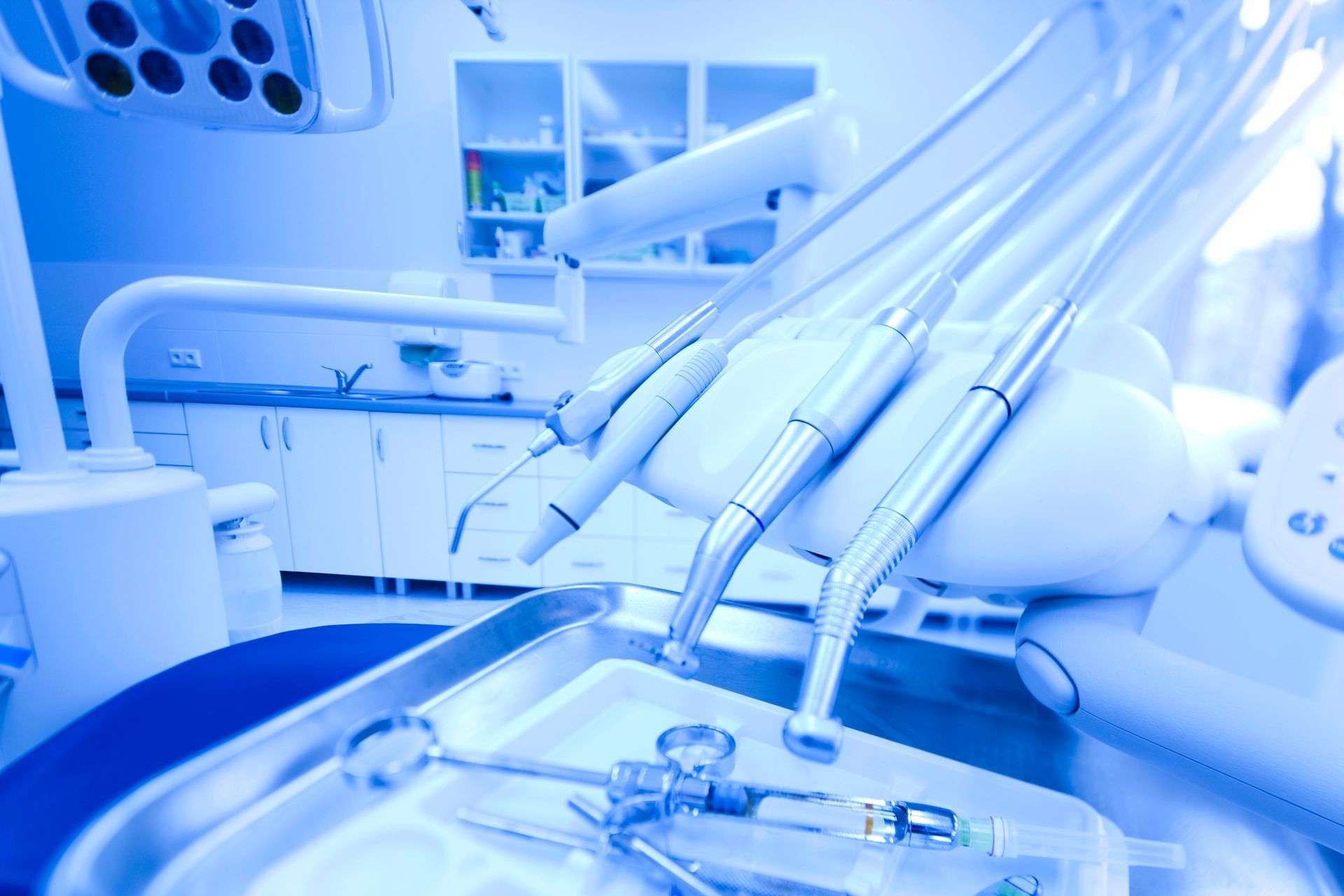
What is the best dental crown material for molars when it comes to choosing the right option? The best dental crown material for molars depends on factors like durability, aesthetics, and personal preference. Understanding these factors can help in making an informed decision.
Best Dental Crown Material for Molars
Understanding dental crown materials is essential when considering the best dental crown material for molars. Dental crowns are designed to restore the function and appearance of teeth, especially molars, which endure significant pressure from chewing. Various materials are available, each with unique properties that cater to different needs. The choice of material can impact the durability, aesthetics, and overall performance of the crown. Factors such as strength, longevity, and compatibility with natural teeth are crucial in determining the most suitable option for molars.
When exploring the best dental crown material for molars, it's important to consider how each material interacts with the natural tooth structure and oral environment. Some materials offer superior strength and resistance to wear, making them ideal for the heavy-duty role of molars. Others may provide a more natural appearance, blending seamlessly with existing teeth. Understanding these differences can help in making an informed decision about which material aligns best with individual dental needs. For more insights on specific materials, you can explore How Long Do Zirconia Crowns Last and How to Maintain Them?
Durability of Molar Crowns
When considering the best dental crown material for molars, durability is a crucial factor. Molars are subjected to significant pressure and wear due to their role in grinding and chewing food. Therefore, the material chosen for molar crowns must withstand these forces over time. The durability of a molar crown can impact its longevity and effectiveness, making it an essential consideration for anyone looking to maintain their dental health.
Different materials offer varying levels of durability, which can influence the overall performance of the crown. Understanding the durability of each option can help in making an informed decision that aligns with individual needs and lifestyle. For more insights on dental crowns, you can visit the Columbia Dental Crown Experts.
Aesthetic Considerations for Molars
When selecting the best dental crown material for molars, aesthetics may not be the primary concern, but it still plays a significant role in the decision-making process. Molars are primarily used for chewing and are located at the back of the mouth, making them less visible than front teeth. However, the appearance of molar crowns can still impact overall dental aesthetics, especially when smiling or speaking. The best dental crown material for molars should ideally blend seamlessly with the natural color and translucency of your teeth, ensuring a harmonious look. While functionality and durability are often prioritized for molars, achieving a natural appearance remains an important consideration for many individuals seeking dental restorations.
Cost Factors in Crown Selection
When considering the best dental crown material for molars, understanding the cost factors involved is crucial. The price of dental crowns can vary significantly based on the material chosen, with options ranging from more affordable to premium choices. Factors such as durability, aesthetic appeal, and longevity play a role in determining the overall cost. Additionally, the complexity of the procedure and the expertise of the dental professional can influence pricing. It's important to weigh these cost considerations carefully to make an informed decision that aligns with your budget and dental needs. For those seeking expert advice, Design Dentistry Columbia offers insights into various options available, and you can learn more by visiting their Columbia Dentist
page.
Longevity of Different Crown Types
When considering the best dental crown material for molars, understanding the longevity of different crown types is crucial. Various materials offer distinct durability levels, impacting how long they can effectively protect and restore molars. Metal crowns, known for their strength, often provide long-lasting solutions, while ceramic and porcelain options offer a more natural appearance with varying degrees of durability. Resin crowns, although less durable, are sometimes chosen for their cost-effectiveness. Each material's lifespan can be influenced by factors such as oral hygiene practices and individual dental habits, making it essential to consider these aspects when evaluating the best dental crown material for molars.
Biocompatibility of Crown Materials
When considering the best dental crown material for molars, biocompatibility is a crucial factor to keep in mind. Biocompatibility refers to how well a material integrates with the body without causing adverse reactions. This is particularly important for molars, which endure significant pressure and are in constant contact with oral tissues. Materials that are biocompatible are less likely to cause irritation or allergic reactions, ensuring a more comfortable and long-lasting fit. Understanding the biocompatibility of different crown materials can help in making an informed decision that aligns with individual health needs and preferences.
Strength Requirements for Molars
When considering the best dental crown material for molars, understanding the strength requirements is crucial due to the significant pressure these teeth endure during chewing. Molars are primarily responsible for grinding food, which subjects them to substantial forces that can lead to wear and tear over time. Therefore, the material chosen for dental crowns in this area must be exceptionally durable to withstand these stresses. The best dental crown material for molars should offer a balance of strength and resilience to ensure long-lasting performance and maintain oral health effectively.
Maintenance of Molar Crowns
Proper maintenance of molar crowns is essential to ensure their longevity and functionality, regardless of the best dental crown material for molars you choose. Regular dental check-ups and good oral hygiene practices play a crucial role in maintaining the integrity of your crowns. By keeping the surrounding gums and teeth healthy, you can help prevent potential issues that might affect the crown's performance. Understanding the specific care requirements for different materials can also contribute to the overall success of your dental restoration, ensuring that your molar crowns continue to serve their purpose effectively over time.
Innovations in Dental Crown Technology
In recent years, innovations in dental crown technology have significantly influenced the options available for the best dental crown material for molars. Advances in materials science have led to the development of crowns that offer enhanced durability and aesthetic appeal, catering to the unique demands of molar teeth, which require strength to withstand the forces of chewing. These technological advancements have expanded the range of materials, allowing for more personalized solutions that can better mimic the natural appearance and function of teeth. As research continues, the evolution of dental crown technology promises to further refine the choices available, ensuring that patients receive optimal outcomes for their dental health needs.
Conclusion
Choosing the best dental crown material for molars is crucial for long-term oral health, and if you have any questions or need further assistance, feel free to call us at 803-408-7163
or check out our Google Maps
reviews.

Are you curious about dental veneer maintenance tips to keep your veneers in top shape? Proper care ensures their longevity and maintains their aesthetic appeal, allowing you to enjoy a bright smile for years. Dental Veneer Maintenance Tips Understanding Dental Veneers is crucial for anyone looking to maintain their smile. Dental veneers are thin shells designed to cover the front surface of teeth, enhancing their appearance. They are typically made from porcelain or composite resin materials and are custom-fitted to each individual's teeth. While they are durable, understanding the basics of dental veneer maintenance tips can help ensure they remain in excellent condition over time. For those new to veneers, it's important to familiarize yourself with the process and what it entails. You can learn more about the journey by visiting our page on Getting Veneers for the First Time: What to Expect Before and After . This resource provides valuable insights into the initial steps and aftercare, which are essential for maintaining the longevity and appearance of your veneers. Benefits of Natural-Looking Veneers Natural-looking veneers offer a seamless blend with your existing teeth, enhancing your smile without drawing attention to the fact that you have had dental work done. These veneers are crafted to mimic the translucency and color of natural teeth, providing a realistic appearance that boosts confidence and self-esteem. By maintaining your veneers properly, you can ensure they continue to look as natural as the day they were applied. Incorporating dental veneer maintenance tips into your routine is essential for preserving the aesthetic appeal of your veneers. Regular care helps prevent discoloration and damage, ensuring that your veneers remain indistinguishable from your natural teeth. For more information on achieving a flawless smile with veneers, visit Columbia's Best Dental Veneers . Choosing the Right Material When considering dental veneer maintenance tips, selecting the appropriate material is crucial for longevity and appearance. Different materials offer varying levels of durability, stain resistance, and aesthetic appeal, which can impact how well your veneers maintain their look over time. Understanding the characteristics of each material can help ensure that your veneers remain in top condition, complementing your smile while requiring minimal upkeep. Customization for Individual Smiles Dental veneers are a popular choice for enhancing smiles, and their customization plays a crucial role in achieving a natural look that complements each individual's unique facial features. The process of customizing veneers involves selecting the right shape, size, and shade to ensure they blend seamlessly with the natural teeth, creating a harmonious and aesthetically pleasing appearance. This personalized approach not only enhances the overall smile but also boosts confidence by providing a tailored solution that aligns with personal preferences and dental needs. For those interested in learning more about dental veneer maintenance tips, Design Dentistry Columbia offers insights through their Columbia Dentist services. Importance of Professional Consultation Regular professional consultations play a crucial role in maintaining the longevity and appearance of dental veneers. These appointments allow dental professionals to assess the condition of the veneers, ensuring they remain securely bonded and free from damage. During these visits, any potential issues can be identified early, preventing more significant problems down the line. Additionally, professionals can provide personalized advice tailored to individual needs, helping to maintain the natural look and feel of veneers. Prioritizing these consultations is essential for anyone looking to keep their veneers in optimal condition over time. Color Matching Techniques In the realm of dental veneer maintenance tips, understanding color matching techniques is essential for ensuring your veneers blend seamlessly with your natural teeth. Achieving a harmonious appearance involves considering factors such as the shade, translucency, and texture of your veneers in relation to your existing teeth. This process requires a keen eye for detail and an understanding of how different lighting conditions can affect the perceived color of your veneers. By focusing on these elements, you can maintain a consistent and natural look that enhances your smile's overall aesthetic. Maintenance and Care Tips Proper dental veneer maintenance tips are essential for ensuring the longevity and appearance of your veneers. Regular attention to oral hygiene can help maintain the natural look and feel of your veneers, keeping them in top shape. By focusing on consistent care, you can preserve the integrity of your veneers and enjoy a confident smile for years to come. Cost Considerations and Budgeting When it comes to dental veneer maintenance tips, understanding the cost considerations and budgeting is crucial for long-term care. While veneers can enhance your smile, it's important to factor in potential expenses associated with their upkeep. Regular check-ups and any necessary adjustments can contribute to the overall cost, so planning your budget accordingly is essential. Being aware of these financial aspects ensures that you can maintain your veneers effectively without unexpected financial strain, allowing you to enjoy the benefits of your investment over time. Real-Life Success Stories Many individuals have experienced remarkable transformations in their smiles thanks to dental veneers. These real-life success stories highlight the importance of proper dental veneer maintenance tips in preserving the beauty and functionality of veneers. From professionals who rely on their smiles for career success to everyday people who simply want to feel more confident, maintaining veneers has proven to be a crucial aspect of their dental care routine. By following essential dental veneer maintenance tips, these individuals have managed to keep their veneers looking pristine and natural, ensuring their smiles remain a source of pride and joy for years to come. Conclusion For more information on dental veneer maintenance tips, call us at (803) 291-5782 or check out our Google reviews .

